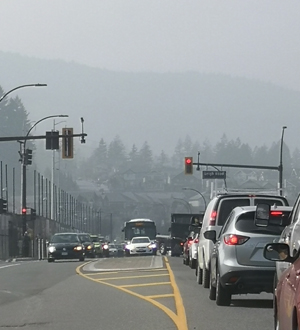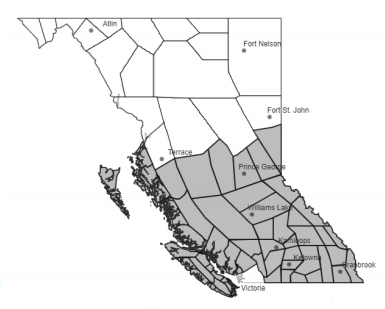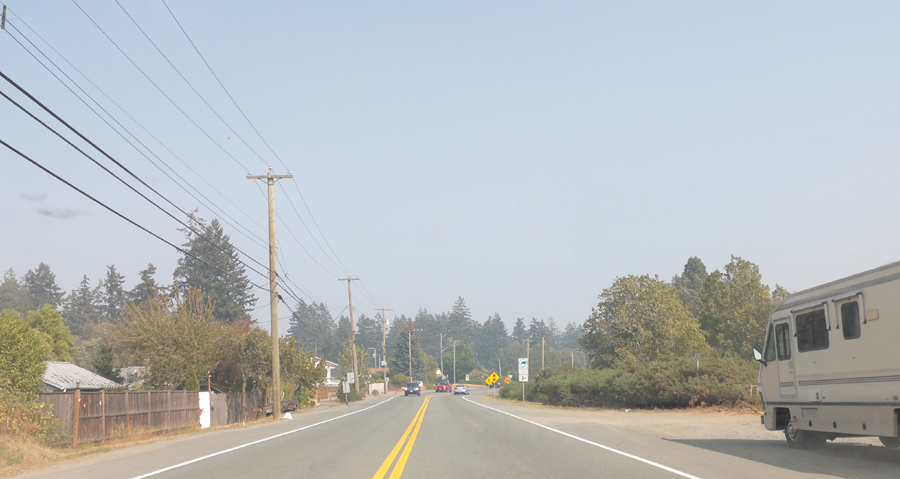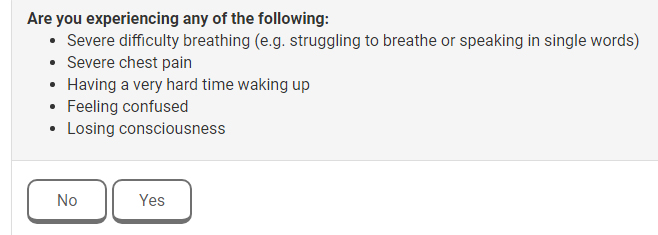
Friday September 11, 2020 | SOUTH VANCOUVER ISLAND
by Mary P Brooke, Editor | Island Social Trends
Due to forest fires in the northwestern United States including California, Washington State and Oregon, there are smoky skies over most of southern BC — including all of Vancouver Island — today September 11. Yesterday was pretty bad that way too, in addition to be a heat-record (high of 29.1°C in Victoria on September 10).
Most regions in BC are being impacted or are likely to be impacted by wildfire smoke over the next 24-72 hours, as stated by Environment BC in a bulletin this morning. The September 11 smoky skies bulletin has been extended to include more regions over the weekend. The next bulletin will be issued on Monday September 14.
“Smoke impacts due to long-range transport from wildfires in the western United States have already been observed in some areas of Vancouver Island, the Lower Mainland, and portions of the interior. Smoke forecast models indicate the potential for a significant push of smoke into BC throughout the weekend,” it was stated in the Environment Canada alert for BC.

The anticipated smoke trajectory indicates that the areas impacted will grow to the north and east as the weekend progresses with the most widespread impacts expected on Sunday.
Areas at higher latitudes, such as Prince George, may have smoke passing through the region aloft. With falling temperatures overnight, temperature inversions in mountain valleys can increase the likelihood of smoke being trapped near the ground. Localized impacts from the Talbott Creek, Woodbury Creek, and Doctor Creek fires continue to be expected.
Health tips during smoky skies:
Follow your common sense:
• Stop or reduce your activity level if breathing becomes uncomfortable or you feel unwell.
• Stay cool and drink plenty of fluids.
• If you have asthma or other chronic illness, carry any rescue (fast-acting) medications with you at all times and activate your personal care plan that has been designed with your family physician.
• Make sure that children and others who cannot care for themselves follow the same advice.

Monitor your symptoms:
• People respond differently to smoke. Mild irritation and discomfort are common, and usually disappear when the smoke clears.
• Exposure to wildfire smoke and the virus that causes COVID-19 can both result in respiratory symptoms such as a dry cough, sore throat, or difficulty breathing. Use the BC COVID-19 Self-Assessment Tool to help determine whether you need further assessment or testing for COVID-19.
• If you are unsure whether you need medical care, call HealthLink BC at 8-1-1.
• If you are experiencing difficulty in breathing, chest pain or discomfort, or a severe cough, contact your health care provider, walk-in clinic, or emergency department.
If you are having a medical emergency: call 9-1-1.
Tips to reduce your smoke exposure:
• Smoke levels may be lower indoors but will still be elevated, so stay aware of your symptoms even when you are indoors.
• Running a commercially available HEPA (high efficiency particulate air) filter can improve indoor air quality in the room where the device is located.
• If you have a forced air heating/cooling system in your home, it may help to change the filter and set the fan to run continuously.
• Reduce indoor air pollution sources such as smoking, burning incense, and frying foods.
• If travelling in a car with air conditioning, keep the windows up and the ventilation set to recirculate.
• If you are very sensitive to smoke, consider moving to another location with cleaner air, but be aware that conditions can change rapidly.
• Maintaining good overall health is a good way to prevent health effects resulting from short-term exposure to air pollution.
Additional general information about wildfire smoke and air quality:
• Current Air Quality Health Index (AQHI) and air quality measurements
- Victoria/Saanich Air Quality Index
- Smoke forecasts (next 48 hours):
- ◦ Environment and Climate Change Canada FireWork prediction system
- ◦ Blue Sky Canada Smoke Forecasting System



